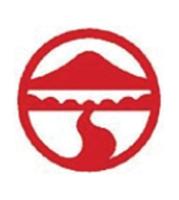| Language Policy |
The School adopts Chinese as the medium of instruction (CMI) to raise the learning effectiveness. Emphasis is placed on English teaching and learning. To enhance students’ proficiency in English, the School<br>- recruits additional native English teachers to further enrich the language environment and run after-school English tutorials.<br>- provides a tailor-made English curriculum for students.<br>- increases students’ exposure to the language through a wide range of English activities such as an English summer immersion programme, English Day, English drama, the English Speech Festival and English speech contests.<br>- trains English Ambassadors to make announcements, give presentations during assemblies and host formal events and ceremonies in English.<br>- runs English enhancement & remedial courses. |
| Learning and Teaching Strategies |
- Introduce concepts of learning to learn and active learning to students. <br>- Encourage acquisition and application of knowledge of different subjects in order to foster curiosity and critical inquiry. <br>- Promote reading across the curriculum so that effective learning skills can be developed.<br>- Strengthen STEM education which stimulates their interest and exploration in science. <br>- Enhance IT education so to raise students’ digital literacy and skills. |
| School-based curriculum |
1. Electives: 2X and 3X. Mathematics Extended Part Module 2, Biology, Physics, Economics, Geography, BAFS, Chinese History, Information & Communication Technology, History, Chemistry, Tourism and Hospitality Studies, Visual Arts and Applied Learning.<br><br> 2. Curriculum highlights: The school attaches great importance to the cultivation of students' self-directed learning ability. Each subject introduces the self-directed learning elements, and emphasizes pre-class preview, cooperative learning and extended learning after class. The school values the importance of equipping students with future knowledge. In addition to Chinese language, English and Putonghua at the junior secondary levels, programming is also added as a fourth language. The school also offers elective courses for junior secondary students. S1 to S3 students can choose one elective course during the weekday classes. There are 16 elective courses in total, including Japanese (elementary & advanced), Korean (elementary & advanced), Unity (elementary), Game Programming, Innovative Technology, Drama, Taekwondo, Archery, Eastern & Western Art and Life, Fashion Design, Creative Culinary, Music KOL, Electronic Music and Chinese Opera. To cater to learner diversity, the English Core Curriculum is designed for S1 less able students. Teaching and learning materials are produced to help students lay the foundations of English and enhance their confidence and interest in the language. As a Christian school, the school develops a comprehensive life education curriculum for S1 to S6 based on the Christian education spirit with the integration of positive education theory PERMA+H and the growth mindset aiming at serving the physical and spiritual needs of students. |
| Approach to Catering for Learner Diversity |
Depending on individual needs of students, the School designs a series of programmes to empower gifted students to excel in subjects such as English, Chinese, Maths, Computer Studies and Science. In addition, remedial courses in Chinese, English and Maths as well as homework sessions are arranged for less able students. |
| Approach to Integrated Education |
In collaboration with the educational psychologist, social worker and counselors, the coordinator teacher devises, implements and evaluates various support strategies including write-ups of the Individual Education Plans, clinical psychology services, social inclusion activities, adventure day camps, life planning day camps, friendship programmes, executive functioning skills workshops, gender workshops, socialization workshops, social groups, parents' talks and teacher training workshops. These strategies allow the stakeholders to share the common ground of support provided to students. |
| Education Support for Non-Chinese Speaking (NCS) Students |
|
| Home-School Co-operation |
Our School runs a Parent-Teacher Association (PTA). Meetings are held on a regular basis. Various activities including dining, hiking and barbecue parties are organized to enhance relationships between teachers and parents. The PTA also runs a study scheme, a reading scheme and various workshops to promote parent-child relationships. |
| School Ethos |
The ethos of the School is based on simplicity. Our discipline policy is firm yet caring. The PTA, serving as a bridge between the School and parents, has also made substantial contributions to nurturing and educating our students. On top of mentoring younger fellow schoolmates, our alumni often run seminars and share personal experiences with them from time to time.<br>The School runs a Big Brothers and Big Sisters Scheme, in which elder students take care of younger ones. Free after-school tutorial classes are provided. Each junior form student is required to join a uniform group, an arts group or a sports team. It is hoped that students can learn independence and self care in the groups.<br>In recent years, the School has been promoting a caring school community and instilling positive values in students who would show love and respect for others in everyday life.<br>As a whole, the School maintains an ethos based upon simplicity and mutual respect between all members of the school community. We cherish academic freedom and whole-person development. |
| School Development Plan |
Implement and practice the vision of Positive Life and Abundance of Self-directed Learning. |
| Teacher Professional Training and Development |
The School encourages teachers to pursue professional development in order to provide quality education for students. We work in partnership with institutions, running teacher workshops as well as school visits in Hong Kong and overseas, to improve teaching and learning effectiveness. Nearly 60% of our teachers hold master degrees or above. |
| Life-wide Learning |
A wide range of clubs related to sports, community services, academic studies, arts and various interests are run throughout the school year. Students are encouraged to choose their clubs according to personal interests and skills. On top of coordinating activities for the Houses (Red, Grey, Blue & Green) and clubs, the Students’ Union also organizes activities with other student groups. |
